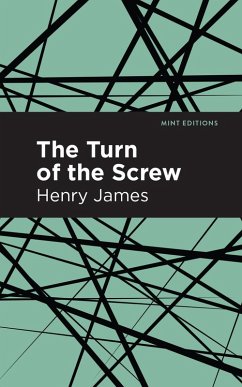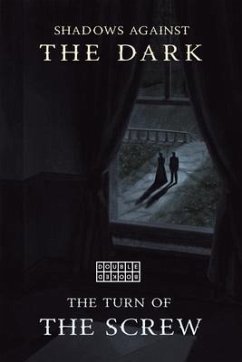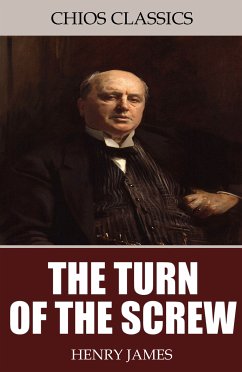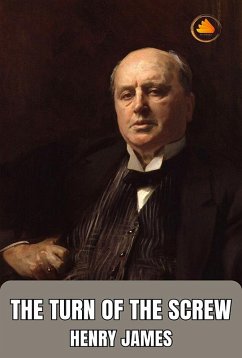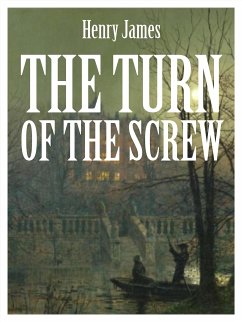
The Turn of the Screw (eBook, ePUB)

PAYBACK Punkte
0 °P sammeln!
Henry James's "The Turn of the Screw" is a masterful narrative that delves into themes of psychological ambiguity, repression, and the nature of evil. Written in 1898, this novella is characterized by its intricate prose and subtle tension, reflecting the complexities of the human psyche and the societal constraints of the Victorian era. The story unfolds through an unreliable narrator, a governess, who is tasked with caring for two enigmatic children at a remote estate, only to encounter spectral apparitions and an unsettling atmosphere that questions the very nature of reality and perception...
Henry James's "The Turn of the Screw" is a masterful narrative that delves into themes of psychological ambiguity, repression, and the nature of evil. Written in 1898, this novella is characterized by its intricate prose and subtle tension, reflecting the complexities of the human psyche and the societal constraints of the Victorian era. The story unfolds through an unreliable narrator, a governess, who is tasked with caring for two enigmatic children at a remote estate, only to encounter spectral apparitions and an unsettling atmosphere that questions the very nature of reality and perception. James, an American novelist often associated with literary realism, was influenced by his extensive European travels and his critical engagement with complex social and moral issues. His own experiences with the contradictions of innocence and corruption prompted him to explore the thin line that separates these opposing forces in "The Turn of the Screw." The novella, with its rich subtext and psychological depth, reflects James's innovative narrative techniques and his fascination with the interplay of consciousness and environment. "The Turn of the Screw" is highly recommended for readers interested in psychological thrillers and Gothic literature. Its layered storytelling invites multiple interpretations, making it a compelling read for both scholars and casual readers. Engage with James's exploration of ambiguity and moral uncertainty, and uncover the unsettling realities that linger just beneath the surface of this haunting tale.
Dieser Download kann aus rechtlichen Gründen nur mit Rechnungsadresse in A, B, BG, CY, CZ, D, DK, EW, E, FIN, F, GR, H, IRL, I, LT, L, LR, M, NL, PL, P, R, S, SLO, SK ausgeliefert werden.





